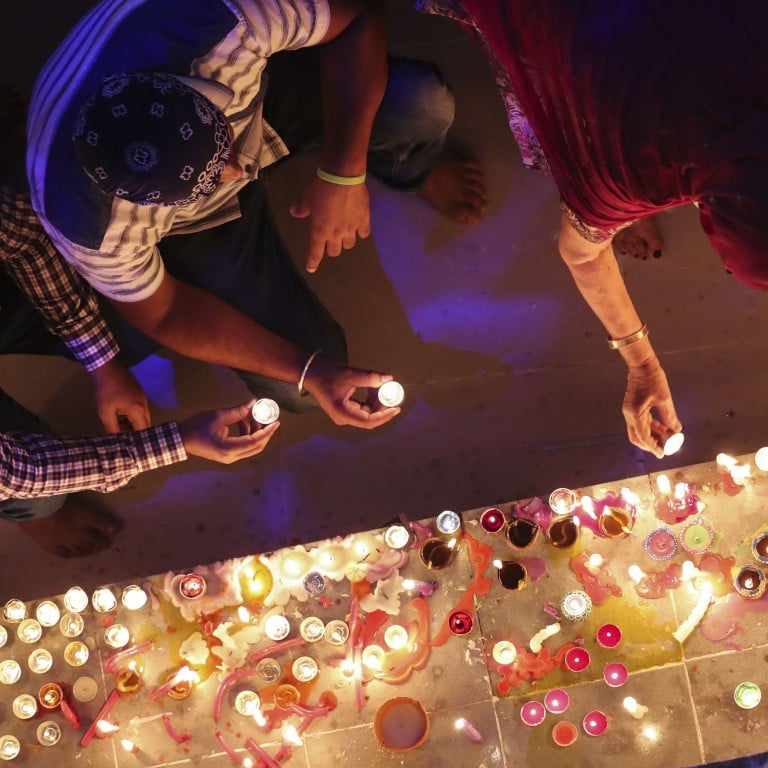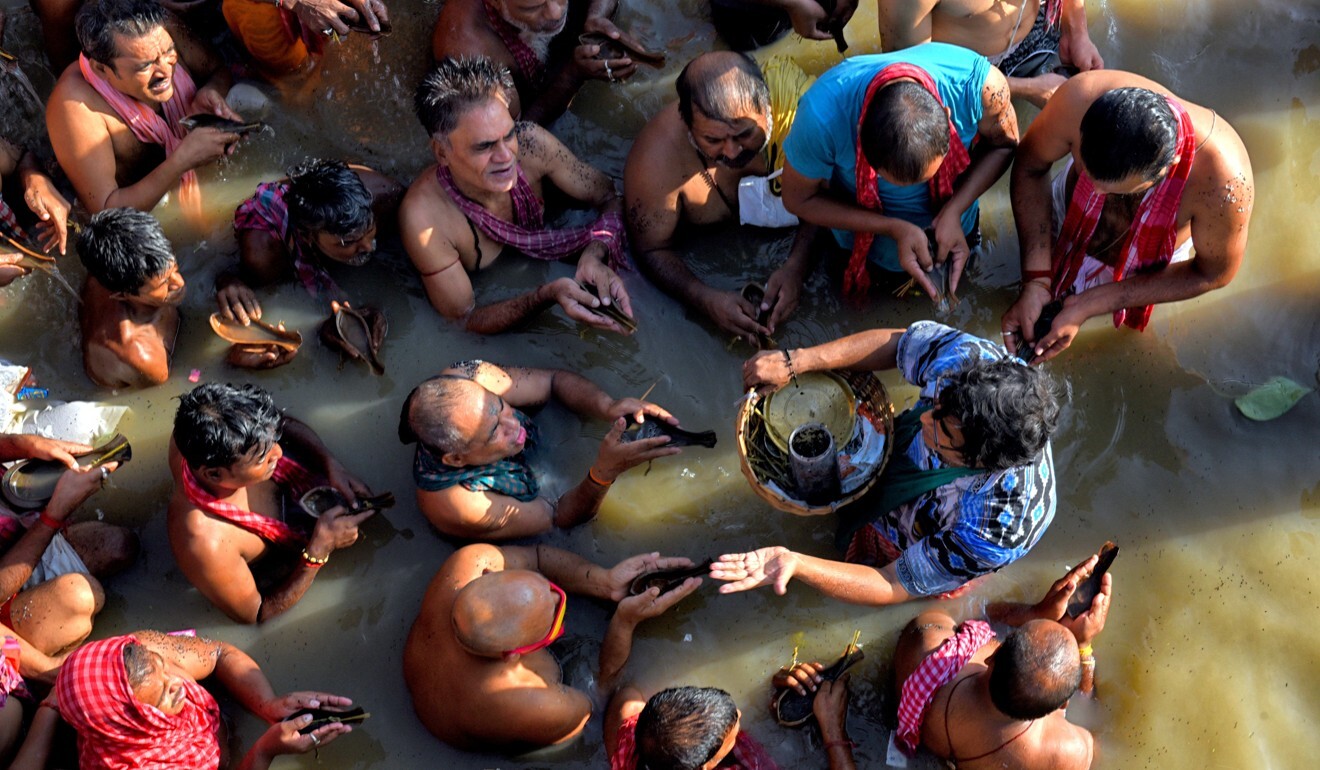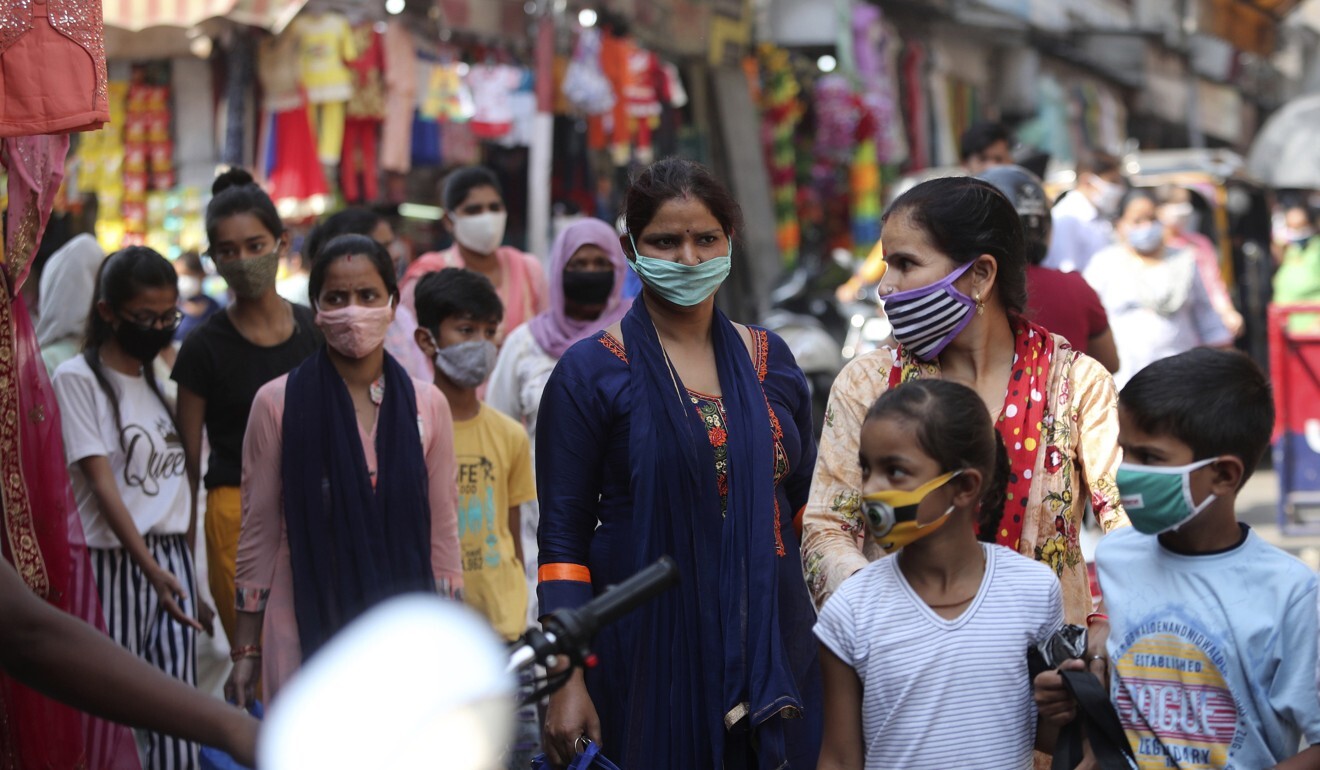
India fears Diwali celebrations will bring surge in coronavirus
- As festival season approaches, health experts fear India’s modest success of recent weeks is about to turn a corner
- Kerala’s response to Covid-19 had been praised by the UN as recently as June, but since the 10-day Onam festival it has become India’s worst-hit state
The southern state of Kerala – previously hailed as a model for its actions in containing the virus – has already been hit by a fresh spurt of infections attributed to people mingling during the 10-day Onam festival in August. Health experts now fear similar problems could emerge as North India enters its festival season in the run up to Diwali on November 14. In addition to Diwali, large public celebrations are expected to take place for Durga Puja, a week-long festival starting on October 22, and Dussehra, which falls on October 25.

Kerala now has the third highest number of active cases per million population – more than 230,000 – of any state in India.
“It all went wrong because of the perception that the disease had disappeared when in fact it had only retreated. There was a huge laxity from the public during Onam which resulted in a surge of cases in September,” said K.K. Shailaja, Kerala’s health secretary.
India’s lockdowns are a matter of life and death for its 450 million informal workers
Last week, Kerala surpassed Maharashtra – until now India’s worst affected state – by recording a staggering 11,755 cases in a single day. The population of Maharashtra is 120 million; Kerala’s is 50 million.
So dire has the situation in Kerala become that public gatherings of more than five people have been banned in some areas.
Kerala’s post-Onam experience has alarmed public health experts who fear similar problems in the run-up to the country’s biggest festival of all – Diwali, the Hindu festival of lights.
Celebrations for Diwali are traditionally as frenzied as those for Christmas. The markets and malls heave with shoppers, roads are clogged with traffic and visiting family and friends to exchange gifts is for most Indians a given.

01:58
As cases top 7 million, India poised to overtake the US with world’s highest coronavirus caseload
Shailaja’s predecessor as Kerala health minister, Rajeev Sadanandan, said people were unlikely to observe social distancing over Diwali given that “festivals are there to forget your worries”.
“All social congregations, festivals, and the attendant shopping fuel the spread of the virus,” he said. “But governments can impose restrictions.”
Diwali traditionally results in a massive increase in consumer spending. It is the one time of year when even the poorest of the poor buy new clothes or items for the house.
As part of the relaxations, cinemas reopened last week, though at 50 per cent capacity and with the requirement that viewers keep empty seats between them.
Indian expats tell of struggle to return to Australia, Hong Kong amid Covid-19
While reopening more areas of social life, government officials say they are aware that if Indians let down their guard during the celebrations, the country may lose any gains made so far.
Belatedly, the New Delhi government has imposed some restrictions for Dussehra. Public gatherings will have attendance limits and require separate entry and exit points. Events will be seating only and food stalls will be banned.
Delhi’s Health Minister Harsh Vardhan urged residents to celebrate at home in small groups and avoid going out. “No God says one needs to visit public places to prove your faith. Just a little carelessness during festivals can worsen the situation,” he said.

So far, there is little evidence his advice is being heeded. In Kolkata, where Durga Puja is fast approaching, shops were last week crowded full of customers pushing and shoving each other, while open air markets were indistinguishable from pre-Covid days.
The scenes have prompted some Kolkata doctors to warn the festival could result in a fourfold increase in infections.

